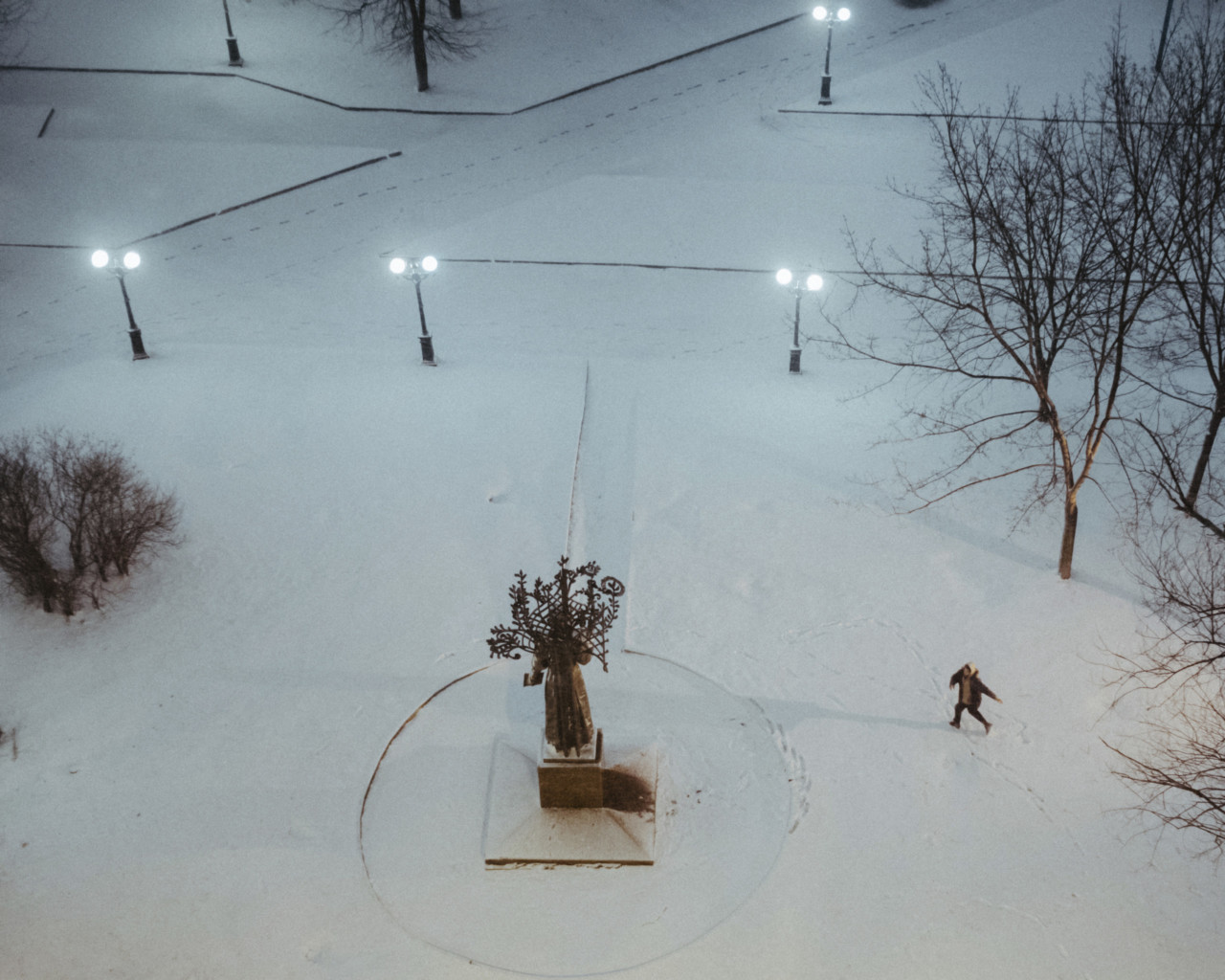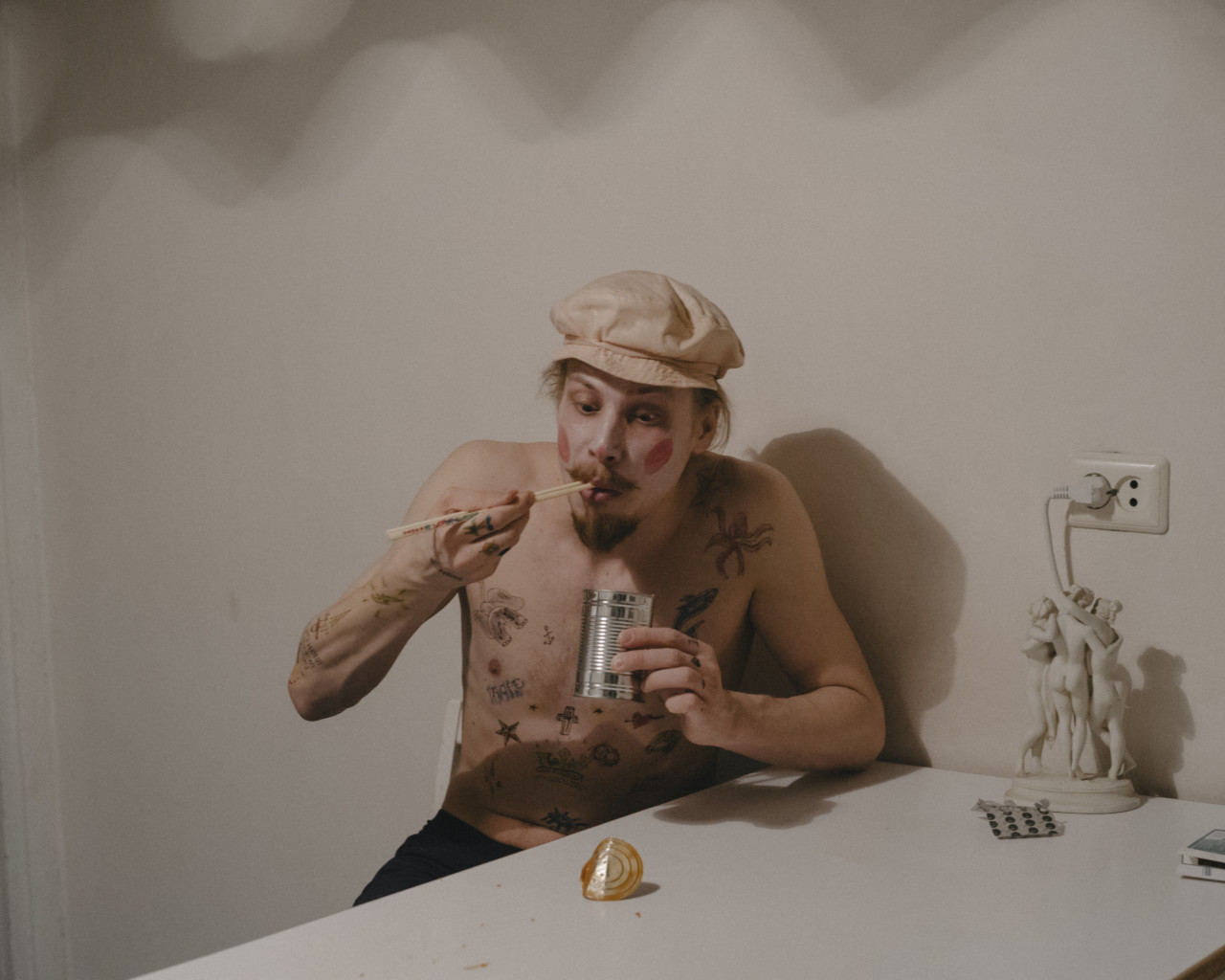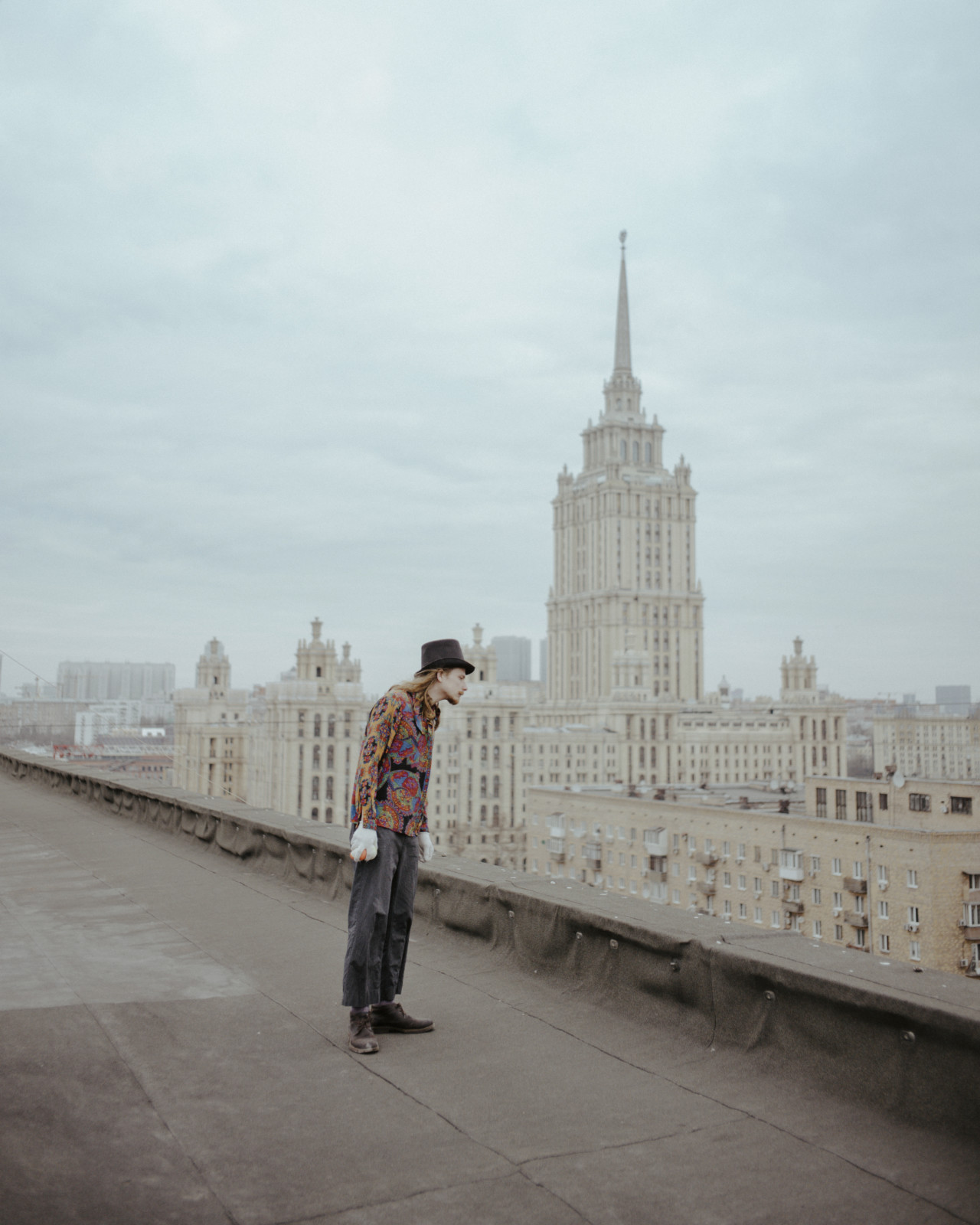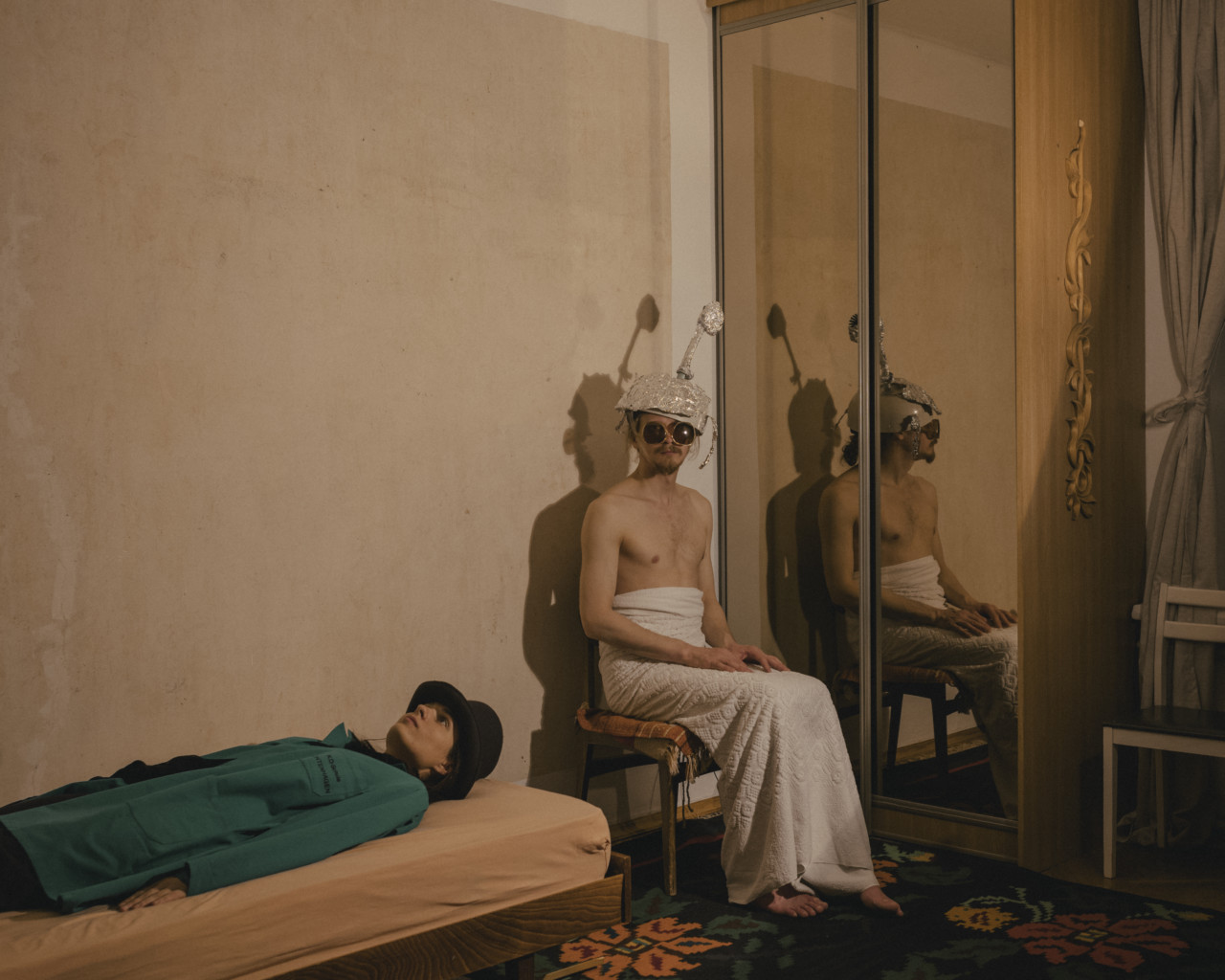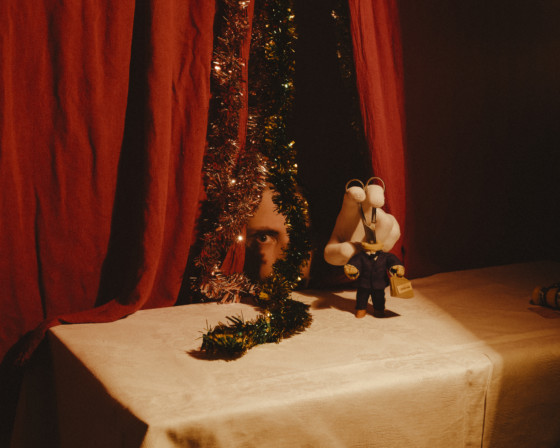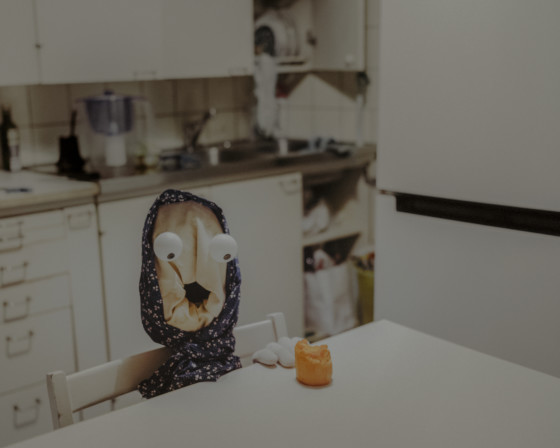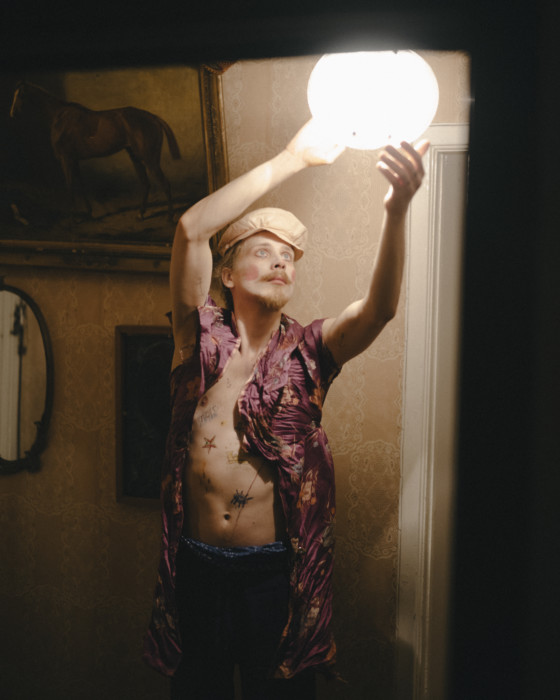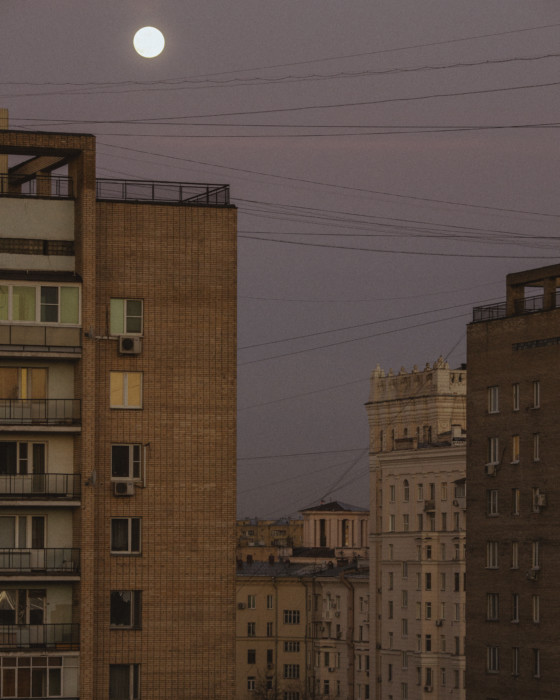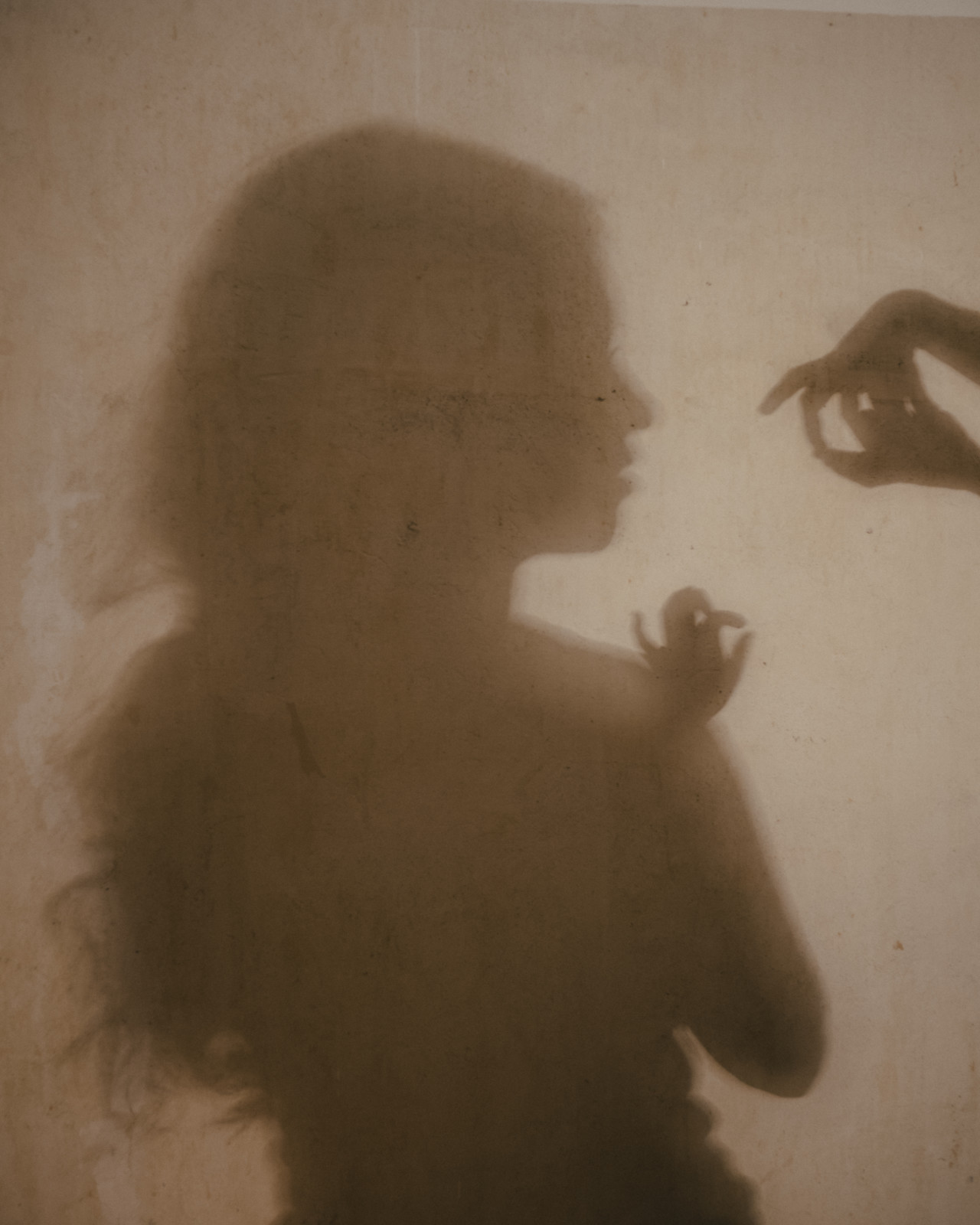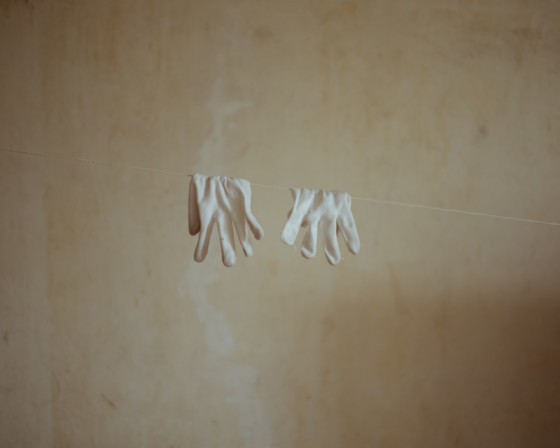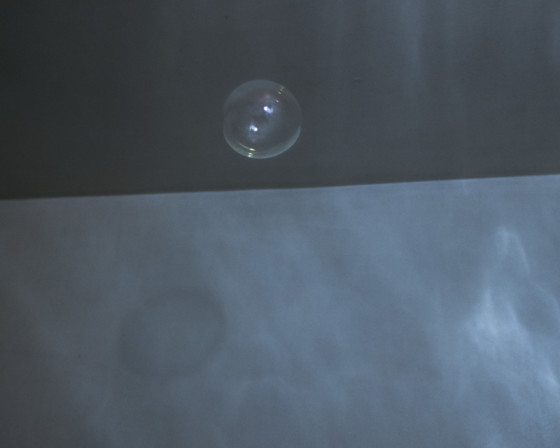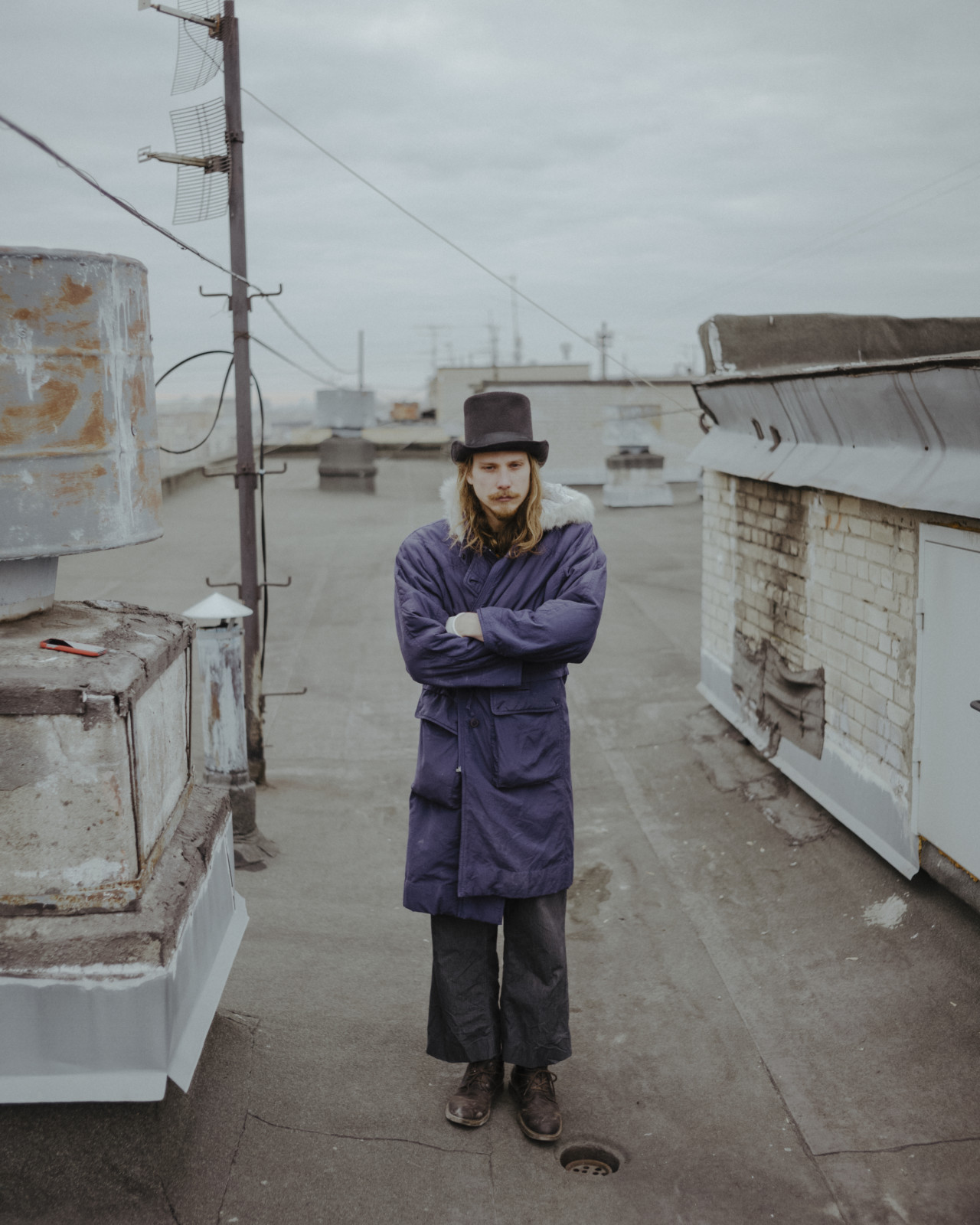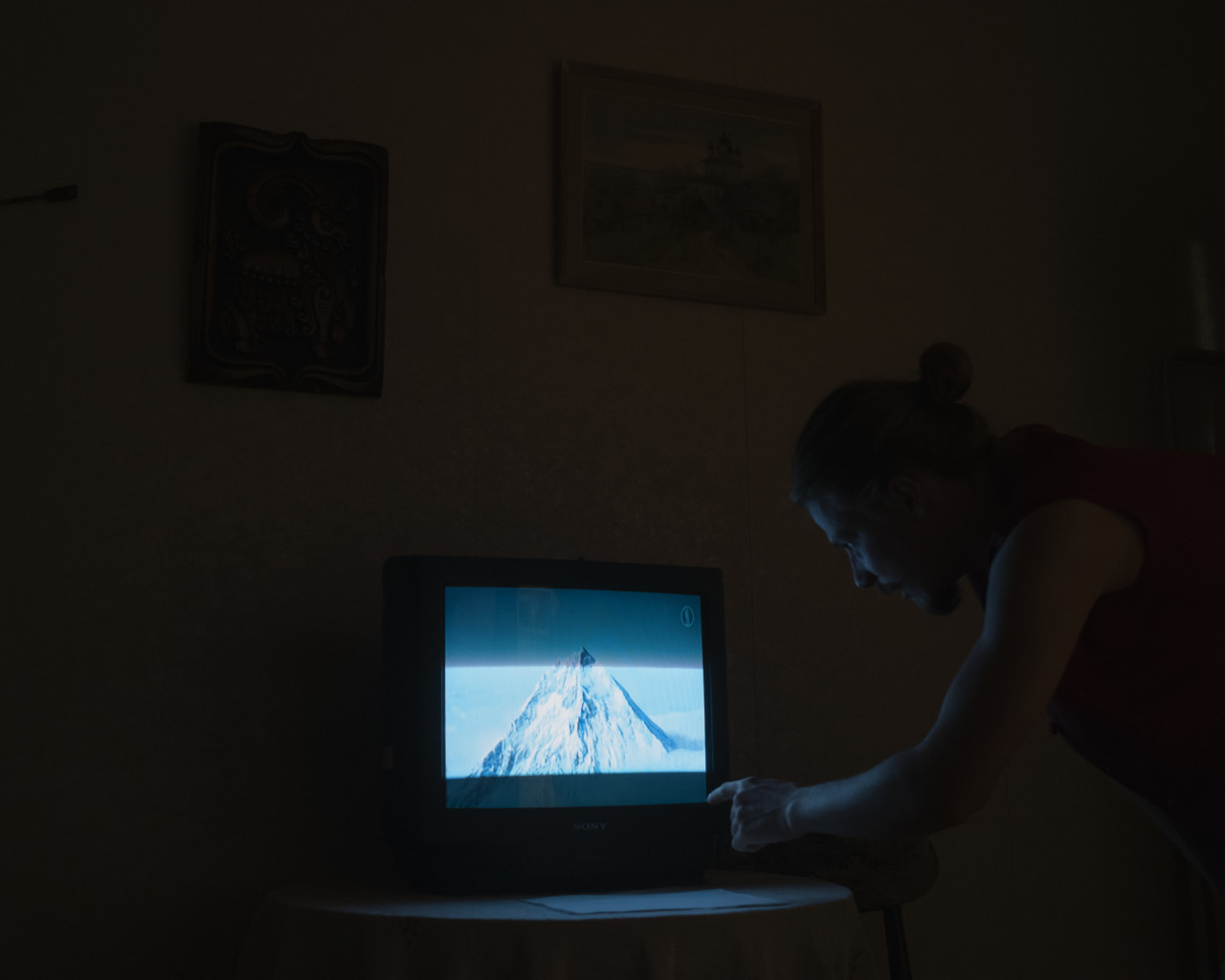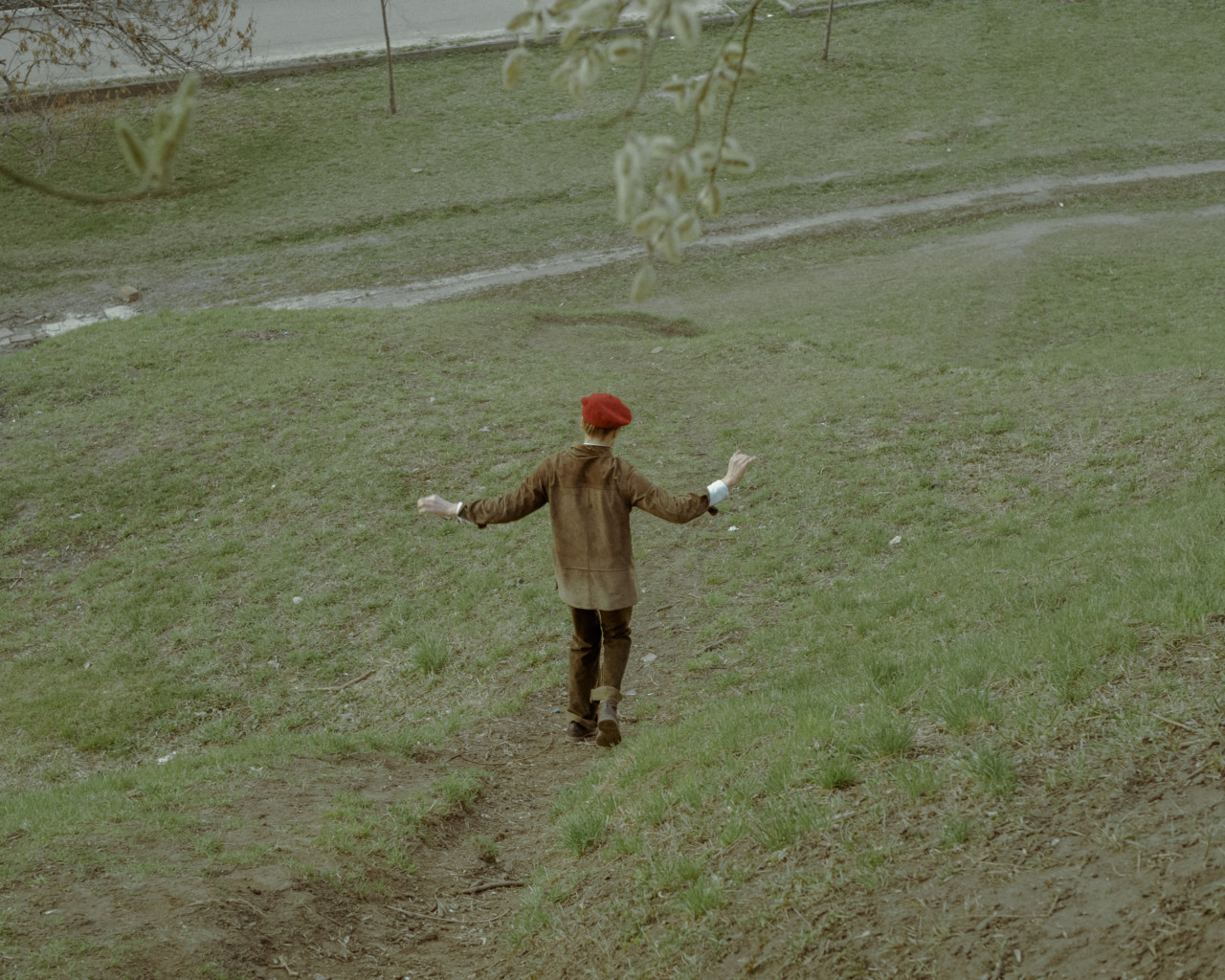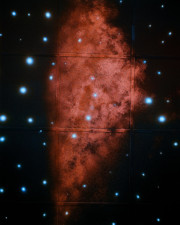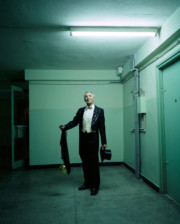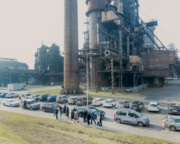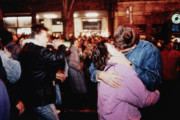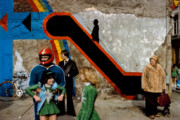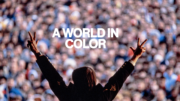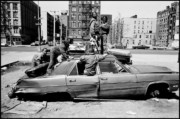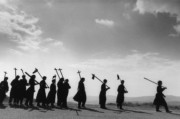Creating a Fantastical World in Autocratic Russia
Nanna Heitmann's ongoing project - created in Moscow's Covid-19 lockdown - explores a subversive and surreal underworld constructed within the familiar domestic spaces of Russia
Over recent weeks Magnum photographers have — as part of an ogoing editorial partnership — contributed photo essays and explanatory texts to the Summer of Solidarity 2020 platform. Summer of Solidarity is a collaborative storytelling media initiative which sees journalists, photographers and artists contributing slow journalism to the platform to create a current, accessible, pan-continental vision of European solidarity.
Here we reproduce Nanna Heitmann‘s contribution to the series. You can see Enri Canaj‘s essay on the refugee camps of Lesbos here, Rafal Milach‘s project on Black Lives Matter in Poland here, and Patrick Zachman‘s ongoing work of the restoration of Notre Dame here. Lean more about the Summer of Solidarity here.
The man in these pictures is my friend Andrey. He is a clown and puppeteer. He was meant to take part in a big retrospective honouring the Russian performance artist and clown “Slava” Polunin this summer, but it had to be canceled because of the coronavirus.
We live together in the centre of Moscow, in my grandmother’s apartment, who lived here from the 1950s onwards.
In Russia I often encounter passivity when it comes to politics. Whenever the state imposes more limits on people’s lives, they will usually find a way around those constraints and oppression, rather than actively confronting power.
During the 1990s, after the collapse of the Soviet Union, people were in a state of euphoria and hopes ran high that the country would change into something better, but now that so much time has passed people feel resigned. They don’t see why they should put themselves at risk by fighting for change that seems impossible.
"The underground theatre and art world, especially in smaller cities appears to be very active, creative and inspiring, but it exists hidden in basements, living rooms and small theatres"
-
Andrey is from Siberia. He and his friends have built their own fantastical world: absurd, crazy and enchanting. The underground theatre and art world, especially in smaller cities appears to be very active, creative and inspiring, but it exists hidden in basements, living rooms and small theatres. Maybe it is the repression in countries like Russia that leads to so much creativity in people.
As a documentary photographer, I am the realist next to my expressionist friend Andrey. While I focus on representing things in a realistic way and often narrow in on everyday life and contemporary topics, I see Andrey expressing his inner world, focusing on emotions rather than external realities.
"Sometimes I would simply photograph him in the situations I’d find him in and sometimes we would together create our own surreal world between four walls"
-
Lockdown in Moscow was strictly controlled by the police and you could only go out to do your shopping. So when it began, I decided to train my lens on Andrey and the magic he constantly creates around himself. Sometimes I would simply photograph him in the situations I’d find him in and sometimes we would together create our own surreal world between four walls.
We also discovered a new place for us: the roof of our apartment building. Behind a closed door on the 13th floor is a staircase to the rooftop. We watched videos on the internet to teach ourselves how to open locks without a key.
Building this magical world and performing ‘rebellious’ acts are things that give us hope. We need these small acts of defiance more now than ever before. In Russia, we feel how state control is increasingly tightening – there are surveillance cameras on the streets and soon there will be full facial recognition.
The pandemic seems to be the perfect playground for an autocratic state. In the few weeks since Putin’s referendum, which now grants him power until 2036, opposition journalists and historians have been arrested.
It is a system that resembles George Orwell’s ‘1984’ novel. That’s why it’s become so important to create free spaces – ones in which you can still dream without even being noticed.


